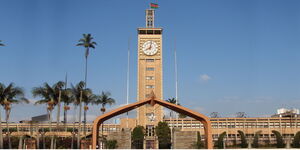Two multinationals are structurally leaving Kenya, following in the footsteps of GlaxoSmithKline which announced its exit from the Kenyan market in 2024 citing the high cost of doing business.
Kenyans.co.ke has learnt that Bayer, a biotechnology company headquartered in Germany, is planning to wind up operations in Kenya and four other countries.
The company announced that it will exit and contract its distribution operations to a third-party company with operations in Kenya, Ethiopia, Nigeria, and Ghana.
Bayer, which has 200 employees, revealed that not all of its employees will be affected by the transition but failed to give a specific number of those who will be impacted.
The announcement followed that of Procter and Gamble, a multinational that manufactures home products, which revealed that it will be exiting the Kenyan market in 2024.
Reports indicate that the exit will impact 30 workers and contractors directly as well as several who work in the manufacturing wings on a contract basis.
The company indicated that it would scale down its operations and cut ties with partners on the ground to base its business on a strict importation model.
Earlier, GlaxoSmithKline had announced that it was significantly scaling down its operations in Kenya and exiting the market altogether.
The company, which has been in Kenya for 60 years, will instead deal with distributors to sell its products locally.
“The production facility in Kenya is a Haleon facility, and is not the subject of the update that GSK gave in Kenya this week,” the company announced.
“We announced that for our GSK business, we would move to a direct distribution model. This means that instead of having a GSK commercial operation in the country we will supply our medicines and vaccines through a third party."
One overriding theme in all the exits was a cry over the increased taxes, a weaker Shilling against the dollar and high energy costs.
When President William Ruto took over the reins, fuel taxes doubled from 8 per cent Value Added Tax (VAT) to 16 per cent while electricity prices continued to shoot up.
In the same period, a slew of taxes were introduced cutting across the unemployed, employed and manufacturers, further affecting consumer behaviour.
The Kenya Association of Manufacturers worries that more job cuts are still on the horizon.












